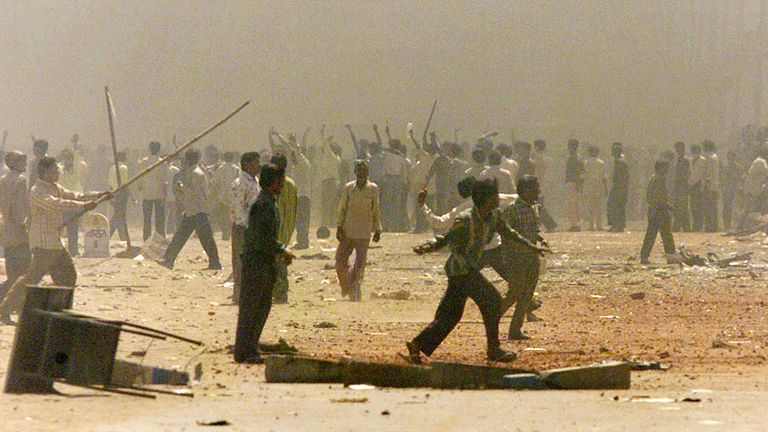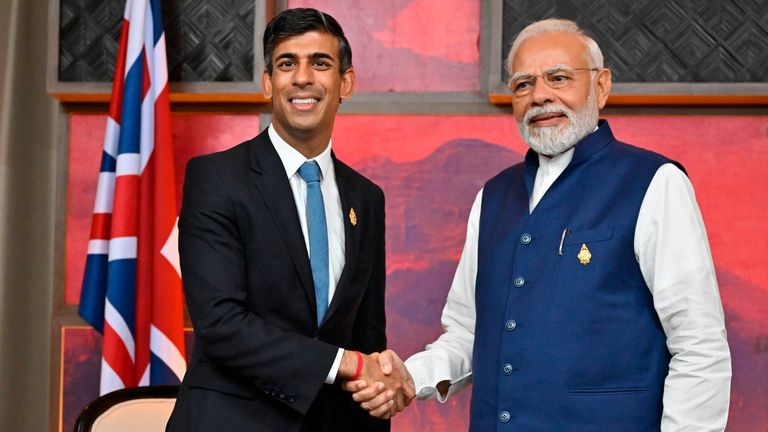India said it had used emergency powers to prevent a BBC documentary about Prime Minister Narendra Modi from spreading online.
The procedure is divided into two parts − India: Modi Questions – Questioning Mr Modi’s leadership during the 2002 Gujarat riots.
According to government adviser Kanchan Gupta, the first episode was aired in the UK on Tuesday and while it was not aired in India, content was shared online.
He said the government had issued orders to YouTube and Twitter to block content under legislation under the country’s information and technology rules. Both social media companies complied, he said.
Last week, a spokesman for India’s foreign ministry called the BBC documentary a “propaganda film” meant to promote a “discredited narrative”.
Rich Sunak was asked about the documentary during Prime Minister’s Questions (PMQs) on Wednesday.
East Bradford Labor MP Imran Hussain asked the prime minister about claims in the film that the Foreign Office “knew the extent of Mr Modi’s involvement in the Gujarat massacre” and asked Mr Sunak whether he thought Mr Modi ” directly responsible” for the ensuing violence.
Mr Sunak replied: “The UK Government’s position on this is clear and long-standing and has not changed. Of course we do not tolerate persecution anywhere, but I am not sure I fully agree with the description the Honorable Sir put forward. “
India is the largest democracy in the world. According to the 2011 census, the country has two major religious groups, with Hindus making up about 80 percent of the population and Muslims about 14 percent.
Mr Modi has served as India’s prime minister since 2014 and is currently serving his second term after being re-elected in 2019.
However, his decade-long tenure as prime minister has been dogged by persistent allegations about his government’s attitudes towards India’s Muslim population.
He was chief minister of the western state of Gujarat when riots in Gujarat killed more than 1,000 people, mostly Muslims, according to official figures.
Violence erupted after a train carrying Hindu pilgrims caught fire, killing 59 people.
Human rights activists estimate that at least twice that number died in the unrest.
Mr Modi has denied allegations that he failed to stop the unrest.
A special panel appointed by the Supreme Court to investigate the role of Mr Modi and others in the violence said in a 541-page report in 2012 that it could find no evidence to indict the then chief minister.
He was later appointed leader of the Hindu nationalist Bharatiya Janata Party (BJP) and led the party to power.
Elections are scheduled to be held in India next year.
The second part of the documentary airs on Tuesday, January 24th.

